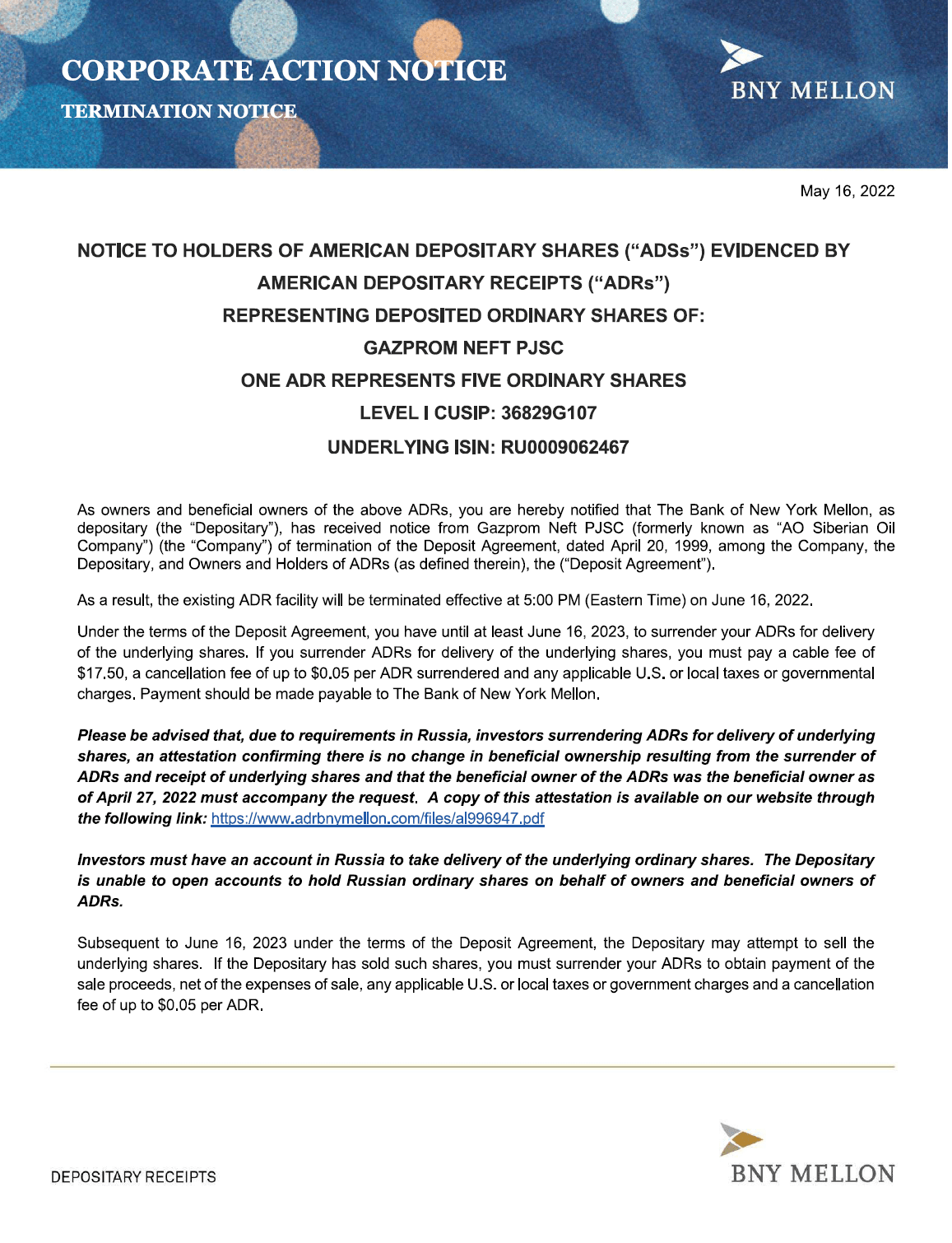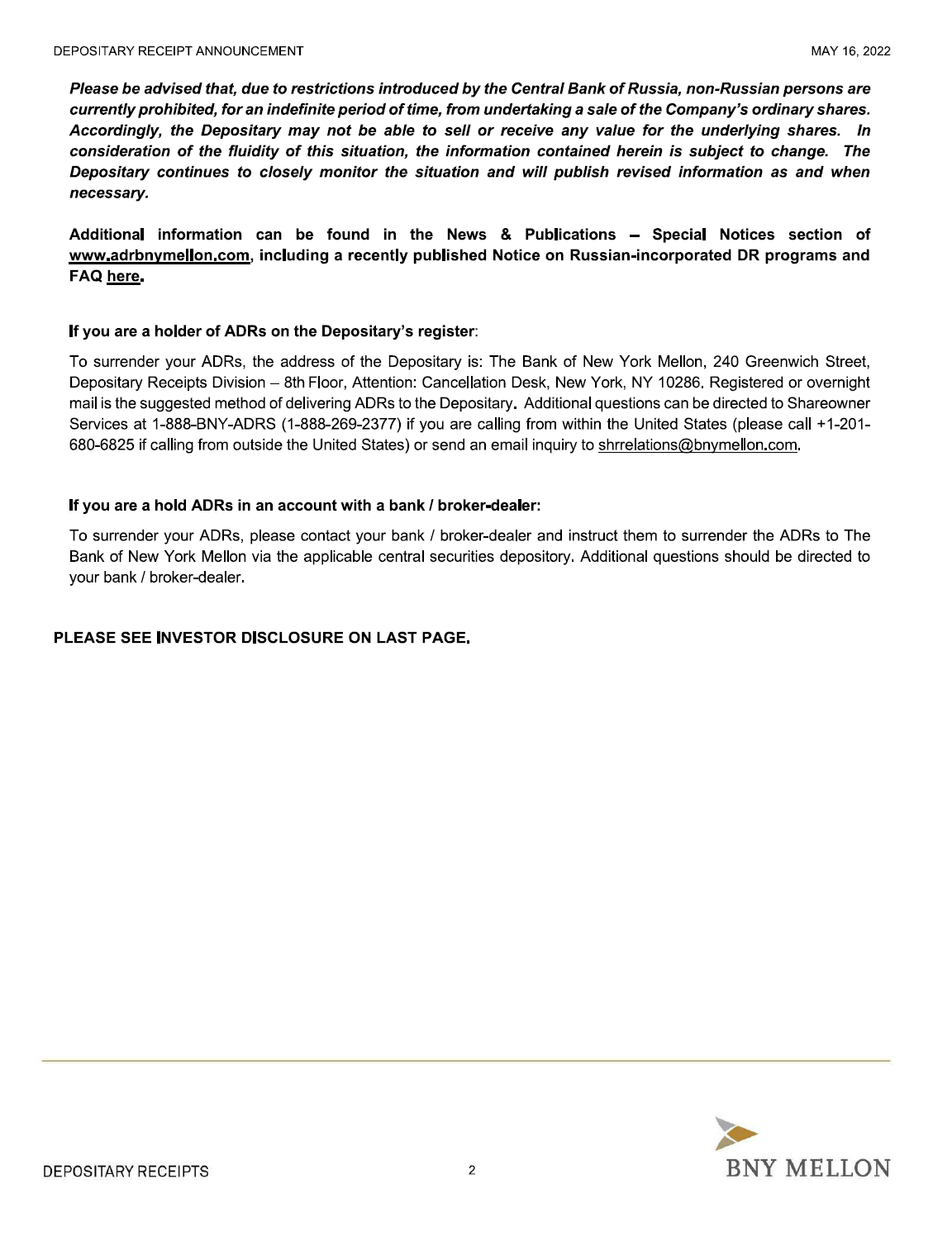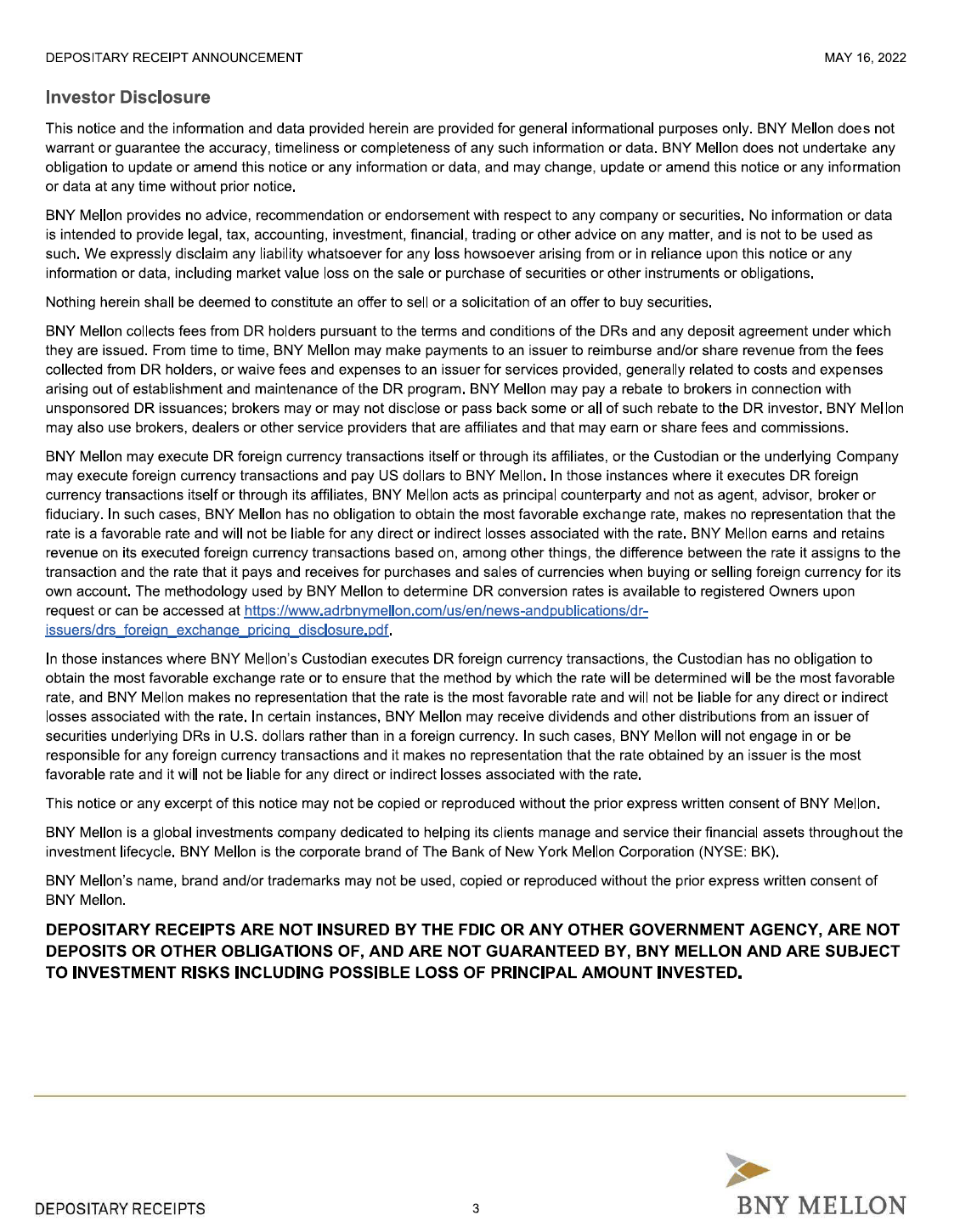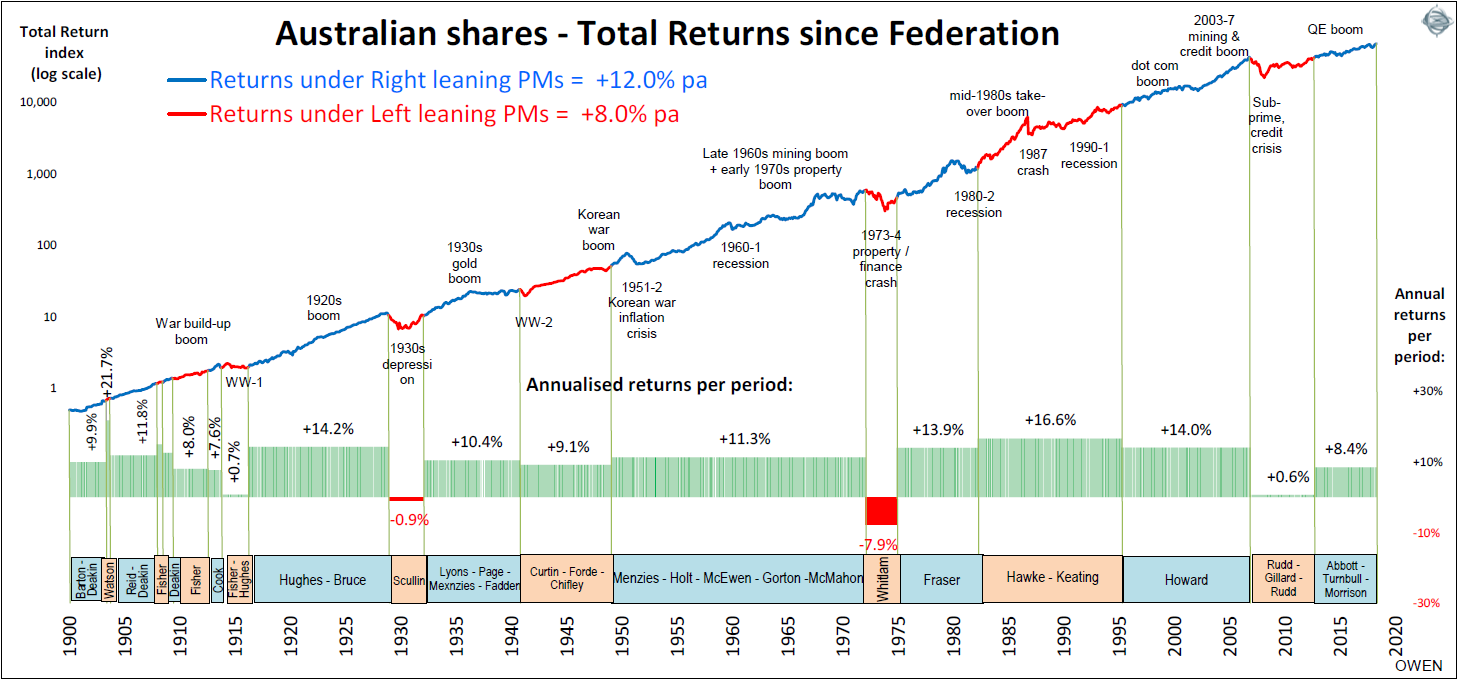Australia’s Westpac Banking Corporation’s ADR was delisted from the NYSE and last traded there on Jan 31, 2022. ADR holders have the option of converting them to ordinary shares trading on the US OTC market or on the domestic market in Australia. The deadline to surrender ADRs is June 2, 2022 – less than 2 weeks away.
If ADRs are not converted before June 2nd, then the depository will automatically sell the underlying shares after that date and you must surrender the shares to receive the sale proceeds less fees and any taxes.
Westpac ADRs can be converted to WEBNF on the OTC market or WBC.AX trading on the ASX.
Below is an excerpt from the termination notice:
As a result, the existing ADR facility will be terminated effective Monday, January 31, 2022 Under the terms of the Deposit Agreement, you have until at least June 2, 2022 to surrender your Westpac ADRs for delivery of the underlying shares. If you surrender ADRs for delivery o f the underlying shares, you must pay a cable fee of $17.50, a cancellation fee of up to $0.05 per ADRs surrendered and any applicable U.S. or local taxes or governmental charges. Payment should be made payable to The Bank of New York Mellon.
Subsequent to June 2, 2022 under the terms of the Deposit Agreement, the Depositary may attempt to sell the underlying shares. If the Depositary has sold such shares, you must surrender your ADRs to obtain payment of the sale proceeds, net of the expenses of sale, any applicable U.S. or local taxes or government charges and a cancellation fee of up to $0.05 per ADRs.
To surrender your ADRs, the address of the Depositary is: The Bank of New York Mellon, 240 Greenwich Street, Depositary Receipts Division – 8th Floor, Attention: Cancellation Desk, New York, NY 10286. Registered or overnight mail is the suggested method of delivering DRs to the Depositary.
Source: BNY Mellon
Related:
Disclosure: Long WEBNF




